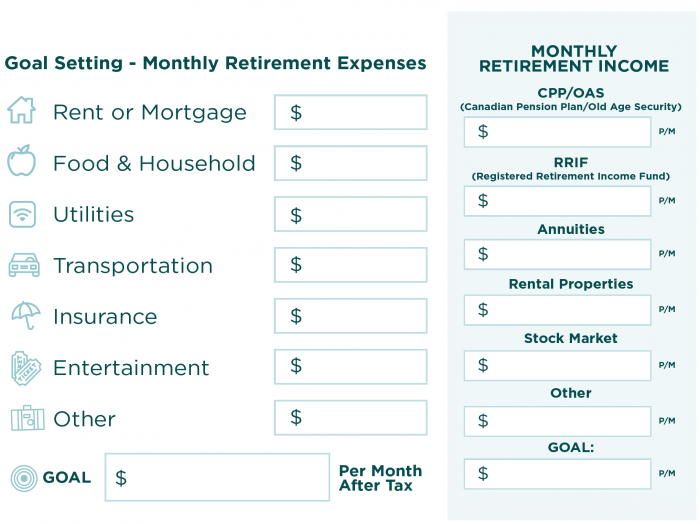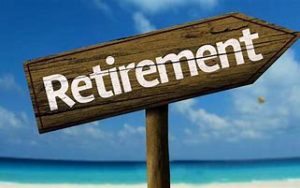
Posted by: Danielle Davies

Each Office Independently Owned & Operated

Posted by: Danielle Davies

Posted by: Danielle Davies

Posted by: Danielle Davies

One of the biggest benefits to purchasing your own home is the ability to build equity in your property. This equity can come in handy down the line for refinancing, renovations, or taking out additional loans – such as a second mortgage.
What is a second mortgage?
First things first, a second mortgage refers to an additional or secondary loan taken out on a property for which you already have a mortgage. This is not the same as purchasing a second home or property and taking out a separate mortgage for that. A second mortgage is a very different product from a traditional mortgage as you are using your existing home equity to qualify for the loan and put up in case of default. Similar to a traditional mortgage, a second mortgage will also come with its own interest rate, monthly payments, set terms, closing costs and more.
Second mortgages versus refinancing
As both refinancing your existing mortgage and taking out a second mortgage can take advantage of existing home equity, it is a good idea to look at the differences between them. Firstly, a refinance is typically only done when you’re at the end of your current mortgage term so as to avoid any penalties with refinancing the mortgage.
The purpose of refinancing is often to take advantage of a lower interest rate, change your mortgage terms or, in some cases, borrow against your home equity.
When you get a second mortgage, you are able to borrow a lump sum against the equity in your current home and can use that money for whatever purpose you see fit. You can even choose to borrow in installments through a credit line and refinance your second mortgage in the future.
What are the advantages of a second mortgage?
There are several advantages when it comes to taking out a second mortgage, including:
What are the disadvantages of a second mortgage?
As always, when it comes to taking out an additional loan, there are a few things to consider:
Before looking into any additional loans, such as a secondary mortgage (or even refinancing), Let’s Chat @ www.RefinedMortgages.com! Regardless of why you are considering a second mortgage, it is a good idea to get a review of your current financial situation and determine if this is the best solution before proceeding.
Published by My DLC Marketing Team
Posted by: Danielle Davies

Are you over the age of 55, own your home, and looking for a way to supplement your income?
Have you considered a Reverse Mortgage?
There’s options to take a Lump Sum, Monthly Deposits or When you need some extra money
Here’s some answers to a few questions you may have:
You could use the funds to cover daily expenses, home renovations, medical bills, in-home care, family needs, trips, or help a relative with a down payment, it’s up to you.
We also offer a range of home-financing solutions. You can work with a mortgage broker to find a plan that works for you.
The value of the reverse mortgage must be equal to or greater than the value of any loan secured against the property.
For example, a borrower who qualifies for 40% on a $500,000 home could access $200,000, provided any loans they have secured by the home are less than $200,000.
You can also checkout this Reverse Mortgage Calculator https://www.equitablebank.ca/residential/reverse-mortgage/tools/eligibility-calculator
Posted by: Danielle Davies
Posted by: Danielle Davies
So, you have decided to utilize your buying power in the Canadian retail market and are looking to purchase a home – congratulations! This is a great step towards ensuring your future.
As a potential homeowner, there are some amazing benefits that we think you should be aware of right out of the gate:
Buying a home is not just about equity and investments, but it is about the future. While it is important to know what a mortgage is and how much you qualify for (and can afford), ensuring your new home is so much more than numbers. In these changing times with the cost of living constantly increasing, having home equity to fall back on can have a huge impact on your quality of life. Not only that, but owning your own home gives you a sense of pride, a feeling of security and the freedom to design the perfect living space for yourself – without having to ask permission from strata or a landlord! Moving into your first apartment or moving on up to your first house is an incredible step in the journey of life!
Now, as excited as you are to get started, you probably have some questions! Let us take you through some of the most important things to know when it comes to home ownership to ensure your experience is as smooth as possible – and provides the best possible outcome for you!
It is amazing how many people really don’t know what a mortgage is. Maybe you weren’t sure you would be in a position to have one or maybe you just never asked! Never fear – we have the answers.
To keep it simple, a mortgage is a loan that is specific to properties and homes. This type of loan uses the home or land you purchase as security in the event the loan cannot be paid. Mortgages are registered as legal documents and can be obtained through a variety of sources (or lenders) including banks, credit unions and alternative lenders or through the use of a mortgage broker!
| Principle | The principal is the amount of the loan that is actually borrowed. |
| Interest Rates | As with any loans (credit cards, lines of credit, etc) interest will be incurred. This is the amount that the lender charges for the privilege of funds borrowed. The amount of your interest payment will depend on the interest rates, which vary depending on terms and conditions of the mortgage and the borrower’s credit history. |
| Mortgage Payments | These can occur monthly, semi-monthly (twice a month), bi-weekly (every other week), accelerated bi-weekly or weekly and are made to the lender. These payments encompass both payments to the principal amount borrowed, as well as interest charges. |
| Amortization Period | This is the number of years it will take to repay the entire mortgage in full and is determined when you are approved. A longer amortization period will result in lower payments but more interest overall as it will take longer to pay off. The typical range is 15 to 30 years. |
| Term | Term is the length of time that a mortgage agreement exists between you and the lender. Rates and payments vary with the length of the term. The most common term is a 5-year, but they can be anywhere from 1 to 10 years. Generally a longer term will come at a higher rate due to the added security. A “Fixed Mortgage” means you are locked in at the interest rate agreed for a longer length of time.A “Variable Mortgage” features an interest rate that is adjusted periodically to reflect market conditions. |
| Maturity Date | The maturity date marks the end of the term. At this time, you can repay the balance of the principle or renegotiate the mortgage at the current rates. Note: If you choose to repay or renegotiate the mortgage before the term is up, penalties may be charged. |
One of the biggest factors to purchasing a home is knowing how much you qualify for when it comes to a mortgage – and how much you can afford!
To determine the amount of the mortgage you qualify for, banks will utilize a set of ratios which determine the amount of your income that will be used to pay down the debt. These ratios are Gross Debt Servicing (GDS) and Total Debt Servicing (TDS).
It sounds confusing, but let us help break this down for you!
The first ratio, Gross Debt Servicing (GDS) is the percentage of gross income that is required to cover housing costs. If you are looking at getting an insured mortgage (less than 20 percent down payment on the purchase price) the limit is 32% GDS. For uninsured mortgages (20 per cent or more down payment) the limit is 39% GDS.
To calculate this, you would take any home-related expenses (mortgage payments, property taxes, utilities and strata fees when applicable) and divide them by gross monthly income to get your GDS percentage.
| Gross Monthly Income | $4,500.00 |
| Mortgage Payment | $1,000.00 |
| Property Taxes | $200.00 |
| Heating Expenses | $150.00 |
| Total Expenses | $1,350.00 |
| Gross Debt Servicing (GDS) | 30% |
The rate of 30% GDS is well within the requirements and would be approved.
The other ratio banks use is known as Total Debt Servicing (TDS). This is the percentage of your gross income required to cover housing costs (same as with the GDS) but also any other debts. The guidelines for an insured mortgage (less than 20 percent down) has a limit of 40% TDS while an uninsured mortgage (20 per cent or more down) is 44% TDS.
To calculate this, you would take all home-related expenses (mortgage payments, property taxes, utilities and strata fees when applicable) and other debts (credit cards, personal loans, student loans, car payment or a line of credit) and divide them by gross monthly income to get your TDS percentage.
| Gross Monthly Income | $4,500.00 |
| Mortgage Payment | $1,000.00 |
| Property Taxes | $200.00 |
| Heating Expenses | $150.00 |
| Student Loan Payment | $100.00 |
| Car Payment | $300.00 |
| Total Expenses | $1,750.00 |
| Total Debt Servicing (TDS) | 39% |
The rate of 39% TDS is well within the requirements and would be approved.
In order to get approved for the mortgage, you need to declare your income so the bank can compare it to your expenses and determine the ratios noted above.
If you are employed with a company, you would provide an employee statement declaring minimum guaranteed gross wage OR last two-year average if there were bonuses or commissions that put your income above your guaranteed wages. If the most recent year was lower, that year will be used instead of the average.
If you are self-employed, you would provide the average of your last two years of income based on line 150 of your tax returns. It is important to know that there are programs available for self-employed borrowers in cases where the two-year average does not qualify them for a mortgage. Just ask your mortgage broker!
There are many cases where buyers will qualify for more than they intend on spending – but don’t get greedy! It is vastly more important, especially for your first home, to stay within a budget that you can afford each month instead of overextending yourself simply because it is available to you. The most important aspect is that your payments are reasonable and affordable. There are always options to move to a larger home in the future!
Posted by: Danielle Davies
Today’s budget announced a $10 billion package of proposals intended to reduce the cost of housing in Canada (see box below). The fundamental problem is insufficient supply to meet the demands of a rapidly growing population base. Thanks to the federal government’s policy to rapidly increase immigration since 2015, new household formation has risen far faster than housing completions, both for rent and purchase. This excess demand has markedly pushed home prices to levels beyond average-income Canadians’ means.
The measures announced in today’s budget to increase housing construction, though welcome, are underwhelming. The Feds can control the construction of lower-cost housing through CMHC. Still, most home building is under the auspices of the municipal governments, where the red tape, zoning restrictions and delays abound. The federal government increased funds to help local governments address these issues, but NIMBY thinking still prevents increased housing density in many neighbourhoods.
The headline policy announcement for a two-year ban on foreign residential property purchases may sound reasonable. Still, according to Phil Soper, chief executive of Royal LePage, “It will have a negligible impact on home prices. We know from the pandemic period, when home prices escalated with virtually no foreign money, that our problem is made-in-Canada.”
According to the Financial Post, Soper added that measures like the tax-free savings account for young Canadians would be encouraged to help them achieve their dreams of homeownership in a typical real estate market. However, in a low-supply environment with pandemic-fuelled price gains, these measures would only add more demand without addressing the supply issue. Only a few first-time buyers would be able to take advantage of it.
The Home Buyers’ Bill of Rights that would end blind bidding and assures the right to a home inspection and transparent historical sales prices on title searches is also long overdue.
The First-Time Home Buyer Incentive has been extended to March 2025. This program has been a bust. Buyers do not want to share the equity in their homes with CMHC. The Feds are taking another kick at the can, “exploring options to make the program more flexible and responsive to the needs of first-time homebuyers, including single-led households.” To date, the limits on the program have made them useless in high-priced markets such as the GTA and the GVA.
Budget 2022 Measures To Improve Housing AffordabilityTax-Free Home Savings Account
- Introduce the Tax-Free First Home Savings Account that would give prospective first-time home buyers the ability to save up to $40,000. Like an RRSP, contributions would be tax-deductible, and withdrawals to purchase a first home—including investment income—would be non-taxable, like a TFSA.
New Housing Accelerator Fund
- With the target of creating 100,000 net new housing units over five years, proposes to provide $4 billion over five years, starting in 2022-23, to launch a new Housing Accelerator Fund that is flexible to the needs and realities of cities and communities, while providing them support such as an annual per-door incentive or up-front funding for investments in municipal housing planning and delivery processes that will speed up housing development.
New Affordable Housing
- To ensure that more affordable housing can be built quickly, Budget 2022 proposes to provide $1.5 billion over two years, starting in 2022-23, to extend the Rapid Housing Initiative. This new funding is expected to create at least 6,000 new affordable housing units, with at least 25% of funding going towards women-focused housing projects.
An Extended and More Flexible First-Time Home Buyer Incentive
- Extension of the First-Time Home Buyer Incentive–which allows eligible first-time homebuyers to lower their borrowing costs by sharing the cost of buying a home with the government–to March 31, 2025. Explore options to make the program more flexible and responsive to the needs of first-time homebuyers, including single-led households.
A Ban on Foreign Investment in Canadian Housing
- Proposes restrictions that would prohibit foreign commercial enterprises and people who are not Canadian citizens or permanent residents from acquiring non-recreational, residential property in Canada for a two-year period.
Property Flippers Pay Their Fair Share
- Introduce new rules so that any person who sells a property they have held for less than 12 months would be subject to full taxation on their profits as business income, applying to residential properties sold on or after January 1, 2023. Exemptions would apply to Canadians who sell their home due to certain life circumstances, such as a death, disability, the birth of a child, a new job, or a divorce.
Rent-to-Own Projects
- Provide $200 million in dedicated support under the existing Affordable Housing Innovation Fund. This will include $100 million to support non-profits, co-ops, developers, and rent-to-own companies building new rent-to-own units.
Home Buyers’ Bill of Rights
- Bring forward a national plan to end blind bidding. Among other things, the Home Buyers’ Bill of Rights could also include ensuring a legal right to a home inspection and ensuring transparency on the history of sales prices on title searches.
Multigenerational Home Renovation Tax Credit
- Provide up to $7,500 in support for constructing a secondary suite for a senior or an adult with a disability, starting in 2023.
Doubling the First-Time Home Buyers’ Tax Credit
- Double the First-Time Home Buyers’ Tax Credit amount to $10,000, providing up to $1,500 in direct support to home buyers, applying to homes purchased on or after January 1, 2022.
Co-Operative Housing Development
- Reallocate funding of $500 million to a new Co-Operative Housing Development Program to expand co-op housing in Canada. Provide an additional $1 billion in loans to be reallocated from the Rental Construction Financing Initiative to support co-op housing projects.
There is also a laundry list of other programs to create additional affordable housing for Indigenous Peoples, Northern Communities, and vulnerable Canadians. Enhanced tax credits for renovations to allow seniors or disabled family members to move in; and for seniors to improve accessibility in their homes. As well, money is provided for long-term efforts to end homelessness.
To combat money laundering, the government said it would extend anti-money laundering and anti-terrorist financing requirements to all mortgage-lending businesses within the next year.
For greener housing initiatives, the government is planning to provide $150 million over five years starting this year to drive building code reform to focus on building low-carbon construction projects and $200 million over the same timeline for building retrofits large development projects.
Bottom Line
Nothing the federal government has done in today’s budget will make much of a difference in the housing market. What does make a difference is the spike in interest rates that is already in train. Fixed mortgage rates are up to around 4%, and variable mortgage rates have begun their ascent. There is still a record gap between the two, but the Bank of Canada will likely hike the policy rate by 50 bps next week. The Bank will probably hike interest rates at every meeting for the remainder of the year and continue into the first half of next year.
It is also noteworthy what Budget 2022 did not do. It did not address REITs or investment activity by domestic non-flipping purchasers. Some were expecting a rise in minimum downpayment on investor purchases or restrictions on using HELOCs for their funding.
Budget 2022 did not raise the cap of $1 million on insurable mortgages. It did not reinstate 30-year amortization, a favourite of the NDP. And, it did not follow the BC provincial government in allowing a “cooling-off” period after a bid has been accepted, technically giving would-be buyers more time to secure financing.
Posted by: Danielle Davies
 Question of the Day…
Question of the Day…Posted by: Danielle Davies

Today’s budget announced a $10 billion package of proposals intended to reduce the cost of housing in Canada (see box below). The fundamental problem is insufficient supply to meet the demands of a rapidly growing population base. Thanks to the federal government’s policy to rapidly increase immigration since 2015, new household formation has risen far faster than housing completions, both for rent and purchase. This excess demand has markedly pushed home prices to levels beyond average-income Canadians’ means.
The measures announced in today’s budget to increase housing construction, though welcome, are underwhelming. The Feds can control the construction of lower-cost housing through CMHC. Still, most home building is under the auspices of the municipal governments, where the red tape, zoning restrictions and delays abound. The federal government increased funds to help local governments address these issues, but NIMBY thinking still prevents increased housing density in many neighbourhoods.
The headline policy announcement for a two-year ban on foreign residential property purchases may sound reasonable. Still, according to Phil Soper, chief executive of Royal LePage, “It will have a negligible impact on home prices. We know from the pandemic period, when home prices escalated with virtually no foreign money, that our problem is made-in-Canada.”
According to the Financial Post, Soper added that measures like the tax-free savings account for young Canadians would be encouraged to help them achieve their dreams of homeownership in a typical real estate market. However, in a low-supply environment with pandemic-fuelled price gains, these measures would only add more demand without addressing the supply issue. Only a few first-time buyers would be able to take advantage of it.
The Home Buyers’ Bill of Rights that would end blind bidding and assures the right to a home inspection and transparent historical sales prices on title searches is also long overdue.
The First-Time Home Buyer Incentive has been extended to March 2025. This program has been a bust. Buyers do not want to share the equity in their homes with CMHC. The Feds are taking another kick at the can, “exploring options to make the program more flexible and responsive to the needs of first-time homebuyers, including single-led households.” To date, the limits on the program have made them useless in high-priced markets such as the GTA and the GVA.
Budget 2022 Measures To Improve Housing AffordabilityTax-Free Home Savings Account
- Introduce the Tax-Free First Home Savings Account that would give prospective first-time home buyers the ability to save up to $40,000. Like an RRSP, contributions would be tax-deductible, and withdrawals to purchase a first home—including investment income—would be non-taxable, like a TFSA.
New Housing Accelerator Fund
- With the target of creating 100,000 net new housing units over five years, proposes to provide $4 billion over five years, starting in 2022-23, to launch a new Housing Accelerator Fund that is flexible to the needs and realities of cities and communities, while providing them support such as an annual per-door incentive or up-front funding for investments in municipal housing planning and delivery processes that will speed up housing development.
New Affordable Housing
- To ensure that more affordable housing can be built quickly, Budget 2022 proposes to provide $1.5 billion over two years, starting in 2022-23, to extend the Rapid Housing Initiative. This new funding is expected to create at least 6,000 new affordable housing units, with at least 25% of funding going towards women-focused housing projects.
An Extended and More Flexible First-Time Home Buyer Incentive
- Extension of the First-Time Home Buyer Incentive–which allows eligible first-time homebuyers to lower their borrowing costs by sharing the cost of buying a home with the government–to March 31, 2025. Explore options to make the program more flexible and responsive to the needs of first-time homebuyers, including single-led households.
A Ban on Foreign Investment in Canadian Housing
- Proposes restrictions that would prohibit foreign commercial enterprises and people who are not Canadian citizens or permanent residents from acquiring non-recreational, residential property in Canada for a two-year period.
Property Flippers Pay Their Fair Share
- Introduce new rules so that any person who sells a property they have held for less than 12 months would be subject to full taxation on their profits as business income, applying to residential properties sold on or after January 1, 2023. Exemptions would apply to Canadians who sell their home due to certain life circumstances, such as a death, disability, the birth of a child, a new job, or a divorce.
Rent-to-Own Projects
- Provide $200 million in dedicated support under the existing Affordable Housing Innovation Fund. This will include $100 million to support non-profits, co-ops, developers, and rent-to-own companies building new rent-to-own units.
Home Buyers’ Bill of Rights
- Bring forward a national plan to end blind bidding. Among other things, the Home Buyers’ Bill of Rights could also include ensuring a legal right to a home inspection and ensuring transparency on the history of sales prices on title searches.
Multigenerational Home Renovation Tax Credit
- Provide up to $7,500 in support for constructing a secondary suite for a senior or an adult with a disability, starting in 2023.
Doubling the First-Time Home Buyers’ Tax Credit
- Double the First-Time Home Buyers’ Tax Credit amount to $10,000, providing up to $1,500 in direct support to home buyers, applying to homes purchased on or after January 1, 2022.
Co-Operative Housing Development
- Reallocate funding of $500 million to a new Co-Operative Housing Development Program to expand co-op housing in Canada. Provide an additional $1 billion in loans to be reallocated from the Rental Construction Financing Initiative to support co-op housing projects.
There is also a laundry list of other programs to create additional affordable housing for Indigenous Peoples, Northern Communities, and vulnerable Canadians. Enhanced tax credits for renovations to allow seniors or disabled family members to move in; and for seniors to improve accessibility in their homes. As well, money is provided for long-term efforts to end homelessness.
To combat money laundering, the government said it would extend anti-money laundering and anti-terrorist financing requirements to all mortgage-lending businesses within the next year.
For greener housing initiatives, the government is planning to provide $150 million over five years starting this year to drive building code reform to focus on building low-carbon construction projects and $200 million over the same timeline for building retrofits large development projects.
Bottom Line
Nothing the federal government has done in today’s budget will make much of a difference in the housing market. What does make a difference is the spike in interest rates that is already in train. Fixed mortgage rates are up to around 4%, and variable mortgage rates have begun their ascent. There is still a record gap between the two, but the Bank of Canada will likely hike the policy rate by 50 bps next week. The Bank will probably hike interest rates at every meeting for the remainder of the year and continue into the first half of next year.
It is also noteworthy what Budget 2022 did not do. It did not address REITs or investment activity by domestic non-flipping purchasers. Some were expecting a rise in minimum downpayment on investor purchases or restrictions on using HELOCs for their funding.
Budget 2022 did not raise the cap of $1 million on insurable mortgages. It did not reinstate 30-year amortization, a favourite of the NDP. And, it did not follow the BC provincial government in allowing a “cooling-off” period after a bid has been accepted, technically giving would-be buyers more time to secure financing.
Written by Sherry Cooper
Posted by: Danielle Davies
Thinking about retirement before it happens is just common sense. But what questions should you be asking yourself? While seeking the advice of a professional like a retirement advisor can be helpful, there are a few questions to start thinking about as you begin to plan.
Deciding early what your wants and priorities will be in your golden years will determine the steps you need to take now. Will travel be more important to you than having a house big enough for the whole family to visit? Will you want to live simply and not have several cars and a large house? Of course, wants and desires will change over the years, but having a set plan to begin with is a good idea.
What are your liabilities, income, and expenses? These will be considered when planning your retirement. You need to identify how much money you will need and where it will have to come from.
It is important to identify all possible income sources that will be available to you on the day you retire. Those could include pensions, RRSPs, savings accounts, government benefits, investment property you own, and your home. Keep in mind you don’t want to rely on the Canadian Pension Plan (CPP). The average payout is $20,000 or around $1,300, and is taxable.
If you think you’ve done everything right, life can bring surprises.

About 20% of retirees are found to be still paying for mortgages, while 66% are carrying credit card debt.
Had to retire early due to a health issue.
A heart attack or a bad back or hip can force people into early retirement. It doesn’t even have to happen to you…it could happen to a spouse and have the same devastating effect. There are a number of health reasons that could keep someone from continuing to work. Don’t rely on disability from the government to cover all your expenses. Make sure you are paying into a RRSP or other investment from an early age so that unexpected illnesses won’t keep you from the retirement you deserve.
Still had unsecured debt.
If you are not aware of your credit card balances, you just might carry that debt into your retirement where you weren’t counting on it still being an expense. It might not have even been a frivolous vacation or an out-of-control spending habit. It’s just the longer you have credit, the more the credit companies will throw at you, so it is best to pay off your balances every month as often as you can.
Still owed on a house and/or investment properties.
Again, retirement can sneak up on you or be forced upon you. When investing in property or managing the mortgage on your primary residence, keep this in mind. A 2nd mortgage might sound fine to pay for an elaborate vacation or to fund a grandkid’s wedding, but you will have to pay it back eventually.
Spent more money before retiring or after retiring than you should have.
People get excited at the prospect of not having to go to work anymore. They see a healthy sum of money in their retirement portfolio and decide they’ve earned a little fun. New cars, expensive vacations, purchasing vacation homes, etc. all will hit your retirement money in a big way. Stick to your retirement plan so your retirement can work for you.
Written by My DLC Marketing Team